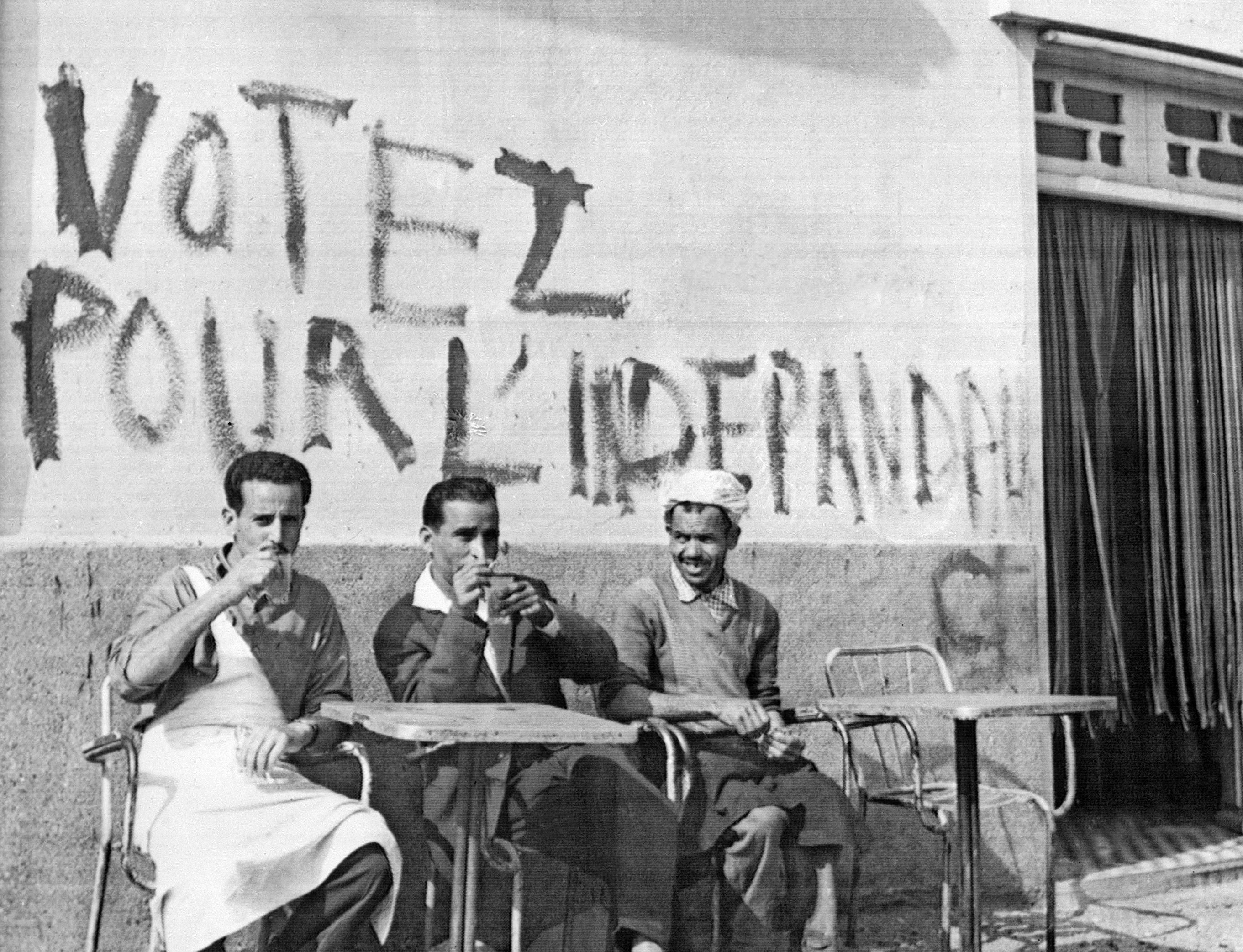Why Macron won’t say sorry for France’s colonial past in Algeria - the 2022 presidential election
Emmanuel Macron’s refusal to apologise for France’s colonial past in Algeria could have to do with heading off the far right in 2022 presidential elections, reports Peter Allen in Paris


Emmanuel Macron is set to become the first French President ever to commemorate the murders of scores of Algerians by Paris police – while refusing to apologise for such atrocities or investigate them properly.
The contradiction is raised in a new official report into France’s 132-year colonial rule of Algeria and the savage war of independence that ended it.
It has led to accusations that Mr Macron wants to win over French voters from Algerian backgrounds, while also courting French nationalists who glorify their old Empire.
The President has made it clear that there will be “neither repentance nor apologies” for the crimes carried out by French forces.
Despite this, historian Benjamin Stora – who was selected by Mr Macron to compile the report – has recommended a number of goodwill gestures.
These include President Macron turning up at the 60th anniversary of the infamous Paris massacres of 17 October 1961, where scores of pro-Algerian independence demonstrators were killed, some beaten, some thrown into the River Seine.
Not a single police officer or anybody else has ever been brought to justice for the murders either, despite the fact that many were carried out in full public view.
An Élysée Palace source confirmed Mr Macron was this year scheduled to attend events linked to the Algerian War including “the commemoration marking the lethal repression of Algerian protestors in Paris” in October.
But survivors immediately accused Mr Macron of electioneering in the run up to the 2022 presidential elections, when he hopes to win a second term in office.
“This is all about politics,” said Belhout Dhabi, who was 21 and a builder living in a suburban Paris shanty town when he watched friends being killed in 1961.
“A lot of the bodies were hidden and the police simply said they had disappeared, enabling the crimes to be covered up.
“We’ve been calling for apologies, reparations and prosecutions for decades, but now we just have the promise of Macron coming to the commemoration to win over Algerian voters in France.
“Macron will also tell the far-Right nationalists that their attacks on Algerians were nothing to be ashamed of, which is despicable,” Mr Dhabi added.
Mr Macron’s principal opponent before his victory in the 2017 presidential election was Marine Le Pen whose party, the Rassemblement National (RN), has its roots in the nationalist war to maintain Algeria as a colony.
The RN was founded as the Front National by Le Pen’s father, the convicted racist and Holocaust denier Jean-Marie Le Pen, who was also a soldier in the Algerian War of Independence, which raged from 1954 until 1962.
Poison gas chambers, napalm, torture and terrorist bombs and assassinations were all used by the French military and police as they fought to hold on to Algeria, which had been filled with European settlers known as the Pieds-Noirs, or Black Feet.
Some 25,000 French soldiers were killed, along with around 3000 Pieds-Noirs and 150,000 Algerian collaborators - the so-called Harkis.
In turn, the FLN National Liberation Front (Front de Libération Nationale) has put the Algerian civilian death toll at up to 1.5million, including FLN fighters.
Atrocities carried out by the terrorist OAS – the Secret Army Organisation made up mainly of police and army officer terrorists opposed to Algerian independence – included attempts to assassinate President Charles de Gaulle.
On June 18, 1961, 28 civilians were killed and 100 injured when an OAS bomb derailed a high-speed train travelling from Strasbourg to Paris.
Like so much criminal activity connected with the Algerian War, the crime was never investigated properly, and there have been no prosecutions.
“There are so many reasons why apologies and reparations are so important, and it is still not too late to bring people to justice,” said Arezki Amazouz, one of the organisers of the annual commemoration on the St Michel Bridge.
Mohamed Badi, spokesman for the CNLH National Harki Liaison Committee said the Stora report’s recommendations had let down all the victims of colonisation.
“What really matters is that France definitively recognises the wrong she has done,” he said. “By hiding this part of history, she distorts history.”
The Algeria colonial experience is still considered a hugely divisive issue in France, with those from Algerian backgrounds still complaining of discrimination in every aspect of their lives.
Hichem Lahouidj, a 26-year-old Algerian student, said: “France must recognise its crimes – the murders, torture and forced displacement of the Algerian people.
“It is up to Algerian diplomacy to advance and denounce this position because the colonialism of France is considered one of the worst.”
Marine Le Pen, who is still Mr Macron’s main challenger for 2022, has routinely linked acts of contrition over Algeria with “hostility to France”.
In the run up to the 2017 presidential election, Ms Le Pen said: “Colonisation brought a lot to former colonies, especially Algeria.”
Mr Macron meanwhile called France’s actions in Algeria a “crime against humanity” full of “acts of barbarism” around the same time – another statement that was clearly made for Algerian ears during a visit to the North African country.
Another illustration of the politicking involved was Gérald Darmanin – who comes from a Harki family and who is now Mr Macron’s Interior Minister – accusing Mr Macron of “spitting on the graves” of those French who died in Algeria “for a France they loved”.
Algerian President Abdelmadjid Tebboune has called for a full apology from the French, along with reparations: “We have already received half-excuses. Another step needs to be taken” he said.
Join our commenting forum
Join thought-provoking conversations, follow other Independent readers and see their replies
Comments


Bookmark popover
Removed from bookmarks